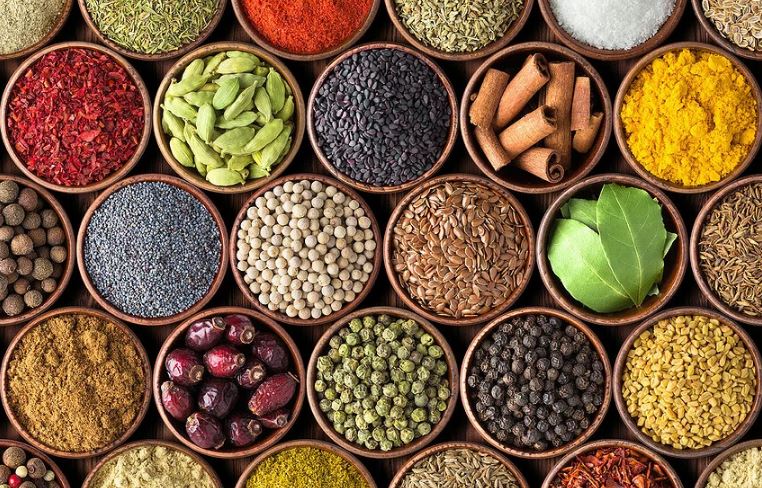In India, winter is a season that often brings a need for warmth and energy. Incorporating certain spices into your diet can not only add flavour to your meals but also provide you with a natural boost of energy.
Here are 10 spices commonly used in Indian cuisine that can help keep you energized during the winter months:
Cinnamon (Dalchini)
Cinnamon, with its sweet and warm flavour, is known for regulating blood sugar levels. This spice is a winter favourite in India, often added to tea or sprinkled on cereals. Its natural sweetness adds a delightful touch to beverages and dishes, providing not only a comforting taste but also potential benefits for energy regulation.
Ginger (Adrak)
Ginger, boasting a spicy and invigorating flavour, is a popular winter spice in India. It stimulates circulation and metabolism, offering a natural energy boost. Whether incorporated into chai, soups, or various dishes, ginger adds a zingy kick and is cherished for its potential to enhance overall well-being.
Turmeric (Haldi)
Turmeric, containing the active compound curcumin, is a powerhouse spice with anti-inflammatory properties. Widely used in Indian cuisine, it can reduce fatigue and contribute to improved well-being. Whether added to curries, stews, or warm milk, turmeric brings not only vibrant colour but also potential health benefits during the winter season.
Cardamom (Elaichi)
With its sweet and aromatic profile, cardamom is a popular spice in Indian cuisine. Known for its digestive benefits, it can alleviate bloating and enhance overall well-being. Used in chai, desserts, and savoury dishes, cardamom adds a distinct flavour while potentially aiding digestion and offering a subtle energy boost.
Black Pepper (Kali Mirch)
Black pepper, renowned for its spicy kick, not only adds flavour but may also boost metabolism and improve digestion. Incorporating it into salads, soups, or main dishes provides a zesty touch while potentially promoting increased energy levels and overall well-being. You can also buy Chaat masala online to sprinkle.
Cloves (Laung)
Laung, or cloves, bring a warm, sweet flavour to dishes. Beyond their aromatic appeal, cloves may stimulate circulation and provide a natural energy lift. Commonly used in rice dishes, stews, and hot beverages, cloves contribute to the rich tapestry of Indian flavours while potentially combating fatigue and promoting vitality.
Fennel Seeds (Saunf)
Fennel seeds, with a licorice-like flavour, are rich in antioxidants and may aid digestion, preventing feelings of sluggishness. Often chewed after meals, these seeds add a refreshing element to dishes, acting as a natural digestive and providing a subtle, sweet taste to various culinary creations.
Coriander (Dhania)
Coriander, known for its fresh and citrusy taste, is rich in antioxidants. Used in salads, soups, and as a garnish, it combats fatigue and contributes a burst of flavour. Its leaves, known as cilantro, add vibrancy to dishes while offering potential health benefits.
Nutmeg (Jaiphal)
Nutmeg, with its warm and slightly sweet flavour, has calming properties and may alleviate fatigue. Used sparingly in warm milk or desserts, it imparts a distinct taste. This spice is valued not only for its unique flavour but also for its potential to enhance relaxation and well-being.
Cumin (Jeera)
Cumin, featuring a warm and earthy flavour, aids digestion and metabolism. Commonly used in curries, soups, and roasted vegetables, it promotes energy levels. Its versatility in Indian cuisine makes it a staple spice, contributing not only to taste but also to the overall digestive well-being of individuals.
Summary
Before you buy Garam Masala online or planning to try these spices, it is important to note that these spices should be used in moderation and as part of a balanced diet. Moreover, individual reactions to spices may vary, so it’s always a good idea to consult with a healthcare professional if you have specific health concerns.
